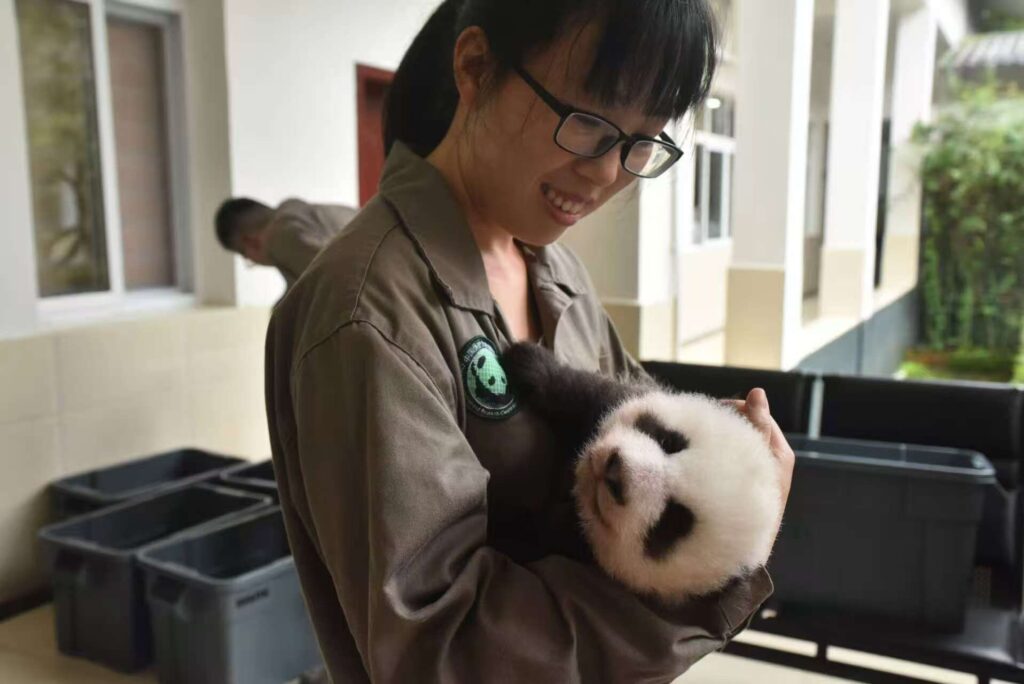
The gut microbiome, a crucial component for health, metabolism, and infection defense, undergoes significant changes in captivity, particularly for endangered species. A recent study published in the journal PLOS One reveals that captivity exerts the most substantial influence on the gut bacteria of giant pandas, red pandas, and Asiatic black bears, surpassing factors such as diet and genetics.
Researchers from China embarked on a comprehensive analysis, collecting fecal samples from both wild and captive individuals of these three endangered species. Utilizing 16S rRNA V4 sequencing, they identified the diverse bacterial populations present in the samples. This method involves analyzing a specific segment of the ribosomal RNA gene to pinpoint bacterial types.
Subsequent data processing with advanced statistical tools, including PERMANOVA (Permutational Multivariate Analysis of Variance), allowed the researchers to evaluate the impact of various factors on the gut microbiome. The study concluded that captivity, representing the environmental factor, accounted for 21.6% of the changes in gut microbiome structure. In contrast, the host animal’s lineage contributed to 12.3%, and diet was responsible for 3.9% of the variation.
Impact of Captivity on Gut Microbial Diversity
The study’s findings indicate a homogenization of gut bacteria among captive animals, with the gut microbiomes of all three species becoming more similar in captivity than in the wild. This shift in microbial diversity varied among species. Captive giant pandas experienced a notable reduction in gut microbial diversity, likely due to alterations in their bamboo-centric diet. Conversely, red pandas and Asiatic black bears showed an increase in microbial diversity, possibly because their omnivorous nature allows them to adapt better to the mixed diets provided in captivity.
A significant alteration was observed in the bacterial composition, with a shift from proteobacteria, which aid in breaking down complex plant materials, to firmicutes, associated with fermenting starches and sugars prevalent in captive diets. This bacterial flip could potentially alter the digestive capabilities of these animals.
Potential Health Risks and Conservation Concerns
One alarming discovery was the rise in potentially harmful bacteria, such as Streptococcus and Escherichia–Shigella, in captive environments. These changes pose significant challenges to conservation efforts, as they may compromise the animals’ health and survival skills once reintroduced into the wild.
“Our results carry critical warnings for reintroduction programs: the loss of wild-associated functional taxa and proliferation of opportunists in captivity may undermine host fitness post-release,” the researchers noted in their paper.
The implications of these findings are profound for conservationists, who are urged to enhance the living conditions of captive animals. Recommendations include the use of probiotics or fecal transplants to restore the natural gut microbiota before reintroducing these animals into their natural habitats.
Broader Implications and Future Directions
This study underscores the complex interplay between environment, diet, and genetics in shaping the gut microbiome. It also highlights the need for a more nuanced approach to wildlife conservation, particularly for species at risk of extinction. By understanding the microbiome’s role in animal health and adaptation, conservationists can develop more effective strategies for managing captive populations and ensuring successful reintroduction into the wild.
As the global community continues to grapple with biodiversity loss, the insights provided by this research offer a pathway to more sustainable and informed conservation practices. Future studies may focus on exploring the long-term impacts of microbiome changes on animal behavior and survival, further enriching our understanding of the intricate relationships between organisms and their environments.







